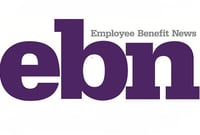 With Boston Mayor Marty Walsh’s nomination to become Secretary of Labor advancing through the Senate, the transfer of power in Washington, DC is progressing. Although the Department of Labor is taking direction from a Democratic administration, the solution to the problem of rampant asset-leakage from the U.S. retirement system will remain on track.
With Boston Mayor Marty Walsh’s nomination to become Secretary of Labor advancing through the Senate, the transfer of power in Washington, DC is progressing. Although the Department of Labor is taking direction from a Democratic administration, the solution to the problem of rampant asset-leakage from the U.S. retirement system will remain on track.
Retirement Clearinghouse is proud to be leading the private sector in developing auto portability as a remedy for this crisis—but we could not have advanced this far without the support of both Democrats and Republicans in Washington.
The DOL’s final Prohibited Transaction Exemption for auto portability in July 2019, and the issuance of the DOL Advisory Opinion on auto portability in November 2018—both of which paved the way for the widespread adoption of auto portability—were the culmination of a years-long effort to secure bipartisan policy support:
- In June 2017, Senator Tim Scott (R-S.C.) sent a letter, co-signed by 10 Republican senators, to then-Secretary of Labor Alexander Acosta urging the DOL to issue guidance on auto portability. This letter received backing from many trade organizations, including the American Benefits Council, the American Retirement Association, the U.S. Chamber of Commerce, the Investment Company Institute, the Securities Industry and Financial Markets Association, the Defined Contribution Institutional Investment Association, the Women’s Institute for a Secure Retirement, the Financial Services Roundtable, the Insured Retirement Institute, and the Society of Professional Asset-Managers and Recordkeepers.
- In June 2016, the Bipartisan Policy Center’s Commission on Retirement Security and Personal Savings published a report recommending the adoption of processes to enable the seamless plan-to-plan transfer of retirement savings when participants switch jobs. The Commission also recommended the establishment of a nationwide retirement security clearinghouse, run by the private sector, to facilitate the seamless transportation of retirement savings balances between plans as participants change jobs.
- In January 2016, President Barack Obama introduced White House initiatives designed to help Americans save more for retirement through the seamless plan-to-plan transfer of 401(k) account balances when they switch employers. President Obama discussed these initiatives during his State of the Union address that month.
- In November 2015, a bicameral group of Congressional members led by Senator Patty Murray (D-Wash.) sent a letter to the Employee Benefits Security Administration urging the agency to issue guidance for plan sponsors on auto portability.
Last year, the nationwide rollout of auto portability began in earnest with 401(k) plan recordkeeper Alight Solutions offering the solution to its client base, comprised of 185 defined contribution plan sponsors serving nearly 5 million employees.
The lack of seamless plan-to-plan asset portability is a legacy issue left unaddressed after the Employee Retirement Income Security Act (ERISA) became law in 1974—and it created a situation where, historically, prematurely cashing out has been the easiest option for participants when they switch jobs. The Employee Benefit Research Institute (EBRI) estimates that the U.S. retirement system loses $92 billion in assets every year, primarily due to cash-outs. This problem continues to build annually, with EBRI having found that 40% of job-changing participants cash out their 401(k) savings within a year of the start dates at their new employers.
Furthermore, minority and low-income workers are the most adversely affected by this situation. According to data from the largest industry recordkeepers, 63% of Black and 57% of Hispanic participants cash out within a year of changing jobs, along with 50% of workers earning between $20,000 and $30,000 in annual income.
Like the Trump and Obama Administrations before it, the Biden Administration is dedicated to shrinking the gap in wealth and retirement savings for minorities. EBRI estimates that if all U.S. retirement savers could access the benefits of auto portability, nearly $1.5 trillion in additional retirement savings would be preserved in 401(k) savings accounts over a 40-year period—including approximately $191 billion in savings for 21 million Black Americans, and $619 billion for all minority workers.
We are confident that regardless of the political party that occupies the White House, bipartisan support for auto portability as a solution for helping more Americans, and especially minorities, increase their savings for retirement will remain strong.
